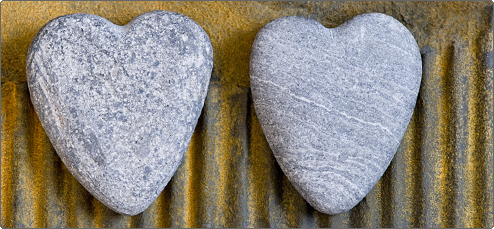
Sitting Shiva
Traditionally, a Shiva lasts for seven (shiva, in Hebrew) days,
though some people choose to mourn for fewer days. The tradition of
Shiva is meant to give attention to the grieving family, who stay
home in mourning for a set period of days immediately following the
burial. It's considered a great mitzvah, or commandment, to pay a
home visit to the mourners.
Not all Jews mourn alike. Some may follow the religious rituals
meticulously, while others may choose to observe only some of the
customs.
If you are attending a Shiva, you might
expect:
- Torn clothing or ribbon symbolizing their broken hearts
- Sitting on low stools (or even on the floor) representing
emotional reality of "brought low" by grief
- No attention made for their appearance, therefore mirrors could
be covered, men may not be shaved and woman may not wear
make-up
- A large candle to burn for the full seven days of Shiva,
representing "the flame of God is the soul of man" (Proverbs
20:27)
- Traditional mourners will not attend to normal activity during
Shiva, such as running errands, watching TV, or listening to the
radio
- Mourners are not expected to greet their visitors. Shiva
relieves the mourners of normal social obligations
If you are paying a Shiva call:
- Bring food instead of flowers - be sure to ask if the family
observes Kosher law. Many bakeries and delicatessens can help you
choose kosher foods.
- Shiva is dedicated to acknowledging the pain and loss,
therefore it's appropriate to share your memories or a story with
the family.
- It's appropriate to bring children to a house of Shiva; but
children should not expect to be entertained in the home.
If you are not available to attend a Shiva, you can send a sympathy note to the family and follow up
with a visit at a later time when it's convenient for you and the
family.
Sitting Shiva
By Elliot Feldman
|
|
When a Grandparent Dies: A Kid's Own Workbook for Dealing with Shiva and the Year Beyond
By R. W. Alley
|
|
Shiva: The Wild God of Power and Ecstasy
By Wolf-Dieter Storl Ph.D.
|
|
Prayers of Consolation
By Rabbi Morris Silverman
|
|
Shiva to Shankara/Decoding the phallic symbol
By Dr.Devdutt Pattanaik
|
|
What is the Meaning of Shiva?
By Karen L. Carney
| |
Sitting Shiva For Myself
By Renee Blitz
|
|
The Kingdom of Shivas Irons
By Michael Murphy
|
| | |